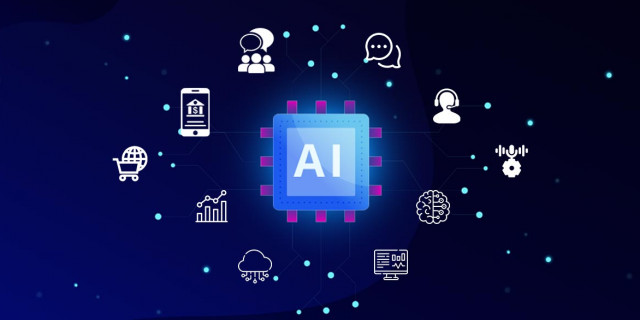Is it easy to develop an AI tool?

Artificial intelligence (AI) is rapidly transforming the way we work, live, and interact with the world around us.
Published: 2023-02-25
More sophisticated and potent AI tools are transforming the way we tackle a wide range of jobs and difficulties, from virtual assistants and chatbots to self-driving cars and predictive analytics.
So how are these AI tools created, and what are some of the most important things that system designers need to remember while creating these systems?
At its core, the creation of AI tools entails employing machine learning algorithms and other cutting-edge computational methods to instruct computers on how to carry out particular activities or address particular issues. This entails acquiring a lot of data, using that data to train machine learning models, and then adjusting those models until they perform and are accurate to the desired degree.
But, creating efficient AI tools requires more than just gathering data and creating models. The ethical and legal ramifications of the technology being developed, the potential biases and constraints of the data they are using, and the need to maintain the security and privacy of users' data and personal information are just a few of the other considerations that developers must make.
Bias is a problem that developers of AI tools must deal with on a daily basis. Because AI technologies can only be as accurate as the data they are trained on, they occasionally reinforce or even magnify societal biases and injustices. A facial recognition algorithm, for instance, may not be as effective at detecting women or persons of color if it was largely trained on photographs of white men. Developers must take measures to make sure that their data is representative and diverse, and that their models are built to account for and reduce bias.
The requirement to protect user privacy and security is a key factor while developing AI tools. Due to the fact that AI technologies frequently process enormous amounts of data, they are susceptible to hacking and other security flaws. To meet regulatory requirements and win users' trust, developers must take precautions to ensure that their systems are safe and that user data is protected.
Despite these difficulties, the topic of developing AI tools is still intriguing and developing quickly. As developers continue to push the limits of what is possible with AI, we may anticipate seeing fresh and ground-breaking uses for the technology across a variety of sectors and fields. AI tools will undoubtedly continue to change how we live and work for years to come, whether it's by assisting physicians in making more accurate diagnoses of diseases, empowering businesses to make better decisions based on data insights, or simply by enhancing how we interact with the world around us.